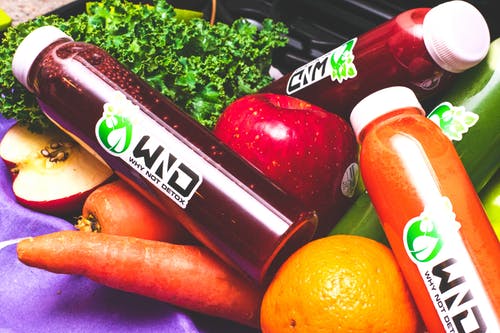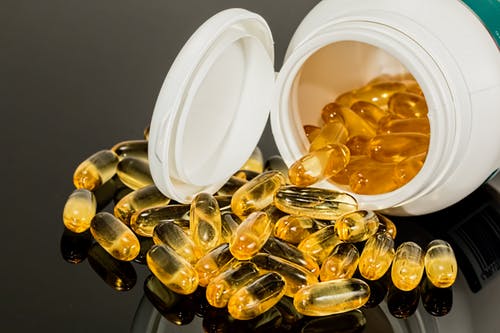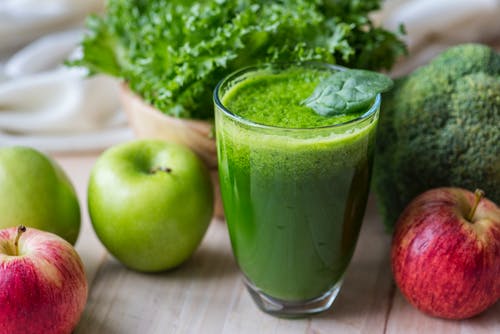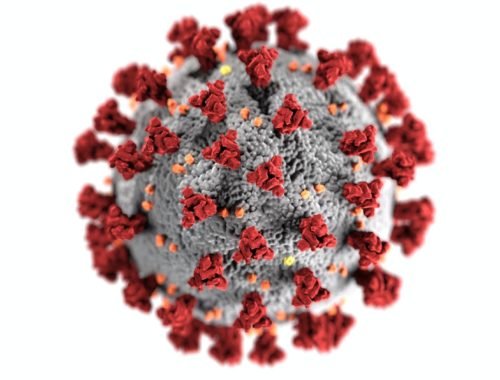
Top 5 Nutrition Myths
Written by Rob Connolly
On the Salus Update Blog, we strive to share information that is evidence-based to help stop the misinformation that quickly spreads across social media and the internet. The myths that I am about to share are so engrained into society as truth, that it may be difficult to ignore the headlines and believe what the evidence supports. Examine.com, an independent organization that does not allow donors or sponsors to influence their publications, has meticulously analyzed the latest scientific research to help debunk some mainstream health myths. Here are the Top 5 Nutrition Myths that deserve another look.
MYTH 1: CARBS ARE BAD FOR YOU

Carbs can lead to obesity, right? Not so fast. Headlines throughout the years have vilified that fats and carbs are the culprits to weight gain, but the evidence is not there to support those claims. “If you wish to lose weight, what matters is not to replace fat by carbs or carbs by fat, but to end most days on a caloric deficit,” examine.com explains.
The truth: eat carbs in moderation, they are not inherently bad for you
MYTH 2: FATS ARE BAD FOR YOU

Our bodies need healthy fats such as omega-3 and omega-6 fatty acids. “As for saturated fat being the main driver of cardiovascular disease: yes, just another myth.” [1] If you are going to avoid fat, evidence supports trans fats to be the only kind detrimental to our health.
The truth: same with carbs, eat fats in moderation and avoid trans fats when possible.
MYTH 3: EGG YOLKS ARE BAD FOR YOU

Countless times we have heard comments such as, “Yolks are high in cholesterol and bad for your heart.” However, the reality is that clinical trials have found “no association was found between eggs and cardiovascular disease, except maybe in some people with specific pre-existing conditions such as diabetes or hyperglycemia.”[1]
The truth: eggs are a good source of vital nutrients such as proteins and fats.
MYTH 4: DIETARY SUPPLEMENTS ARE NECESSARY

Multi-vitamins may be easy to take, but evidence supports that they could be a waste of money and, worse, potentially harmful. “There is no evidence that taking a multi will increase your life expectancy. While it may support your health in some ways, by ensuring adequate intakes of underconsumed nutrients, it could hurt it in others, by making you overconsume some nutrients to the point where they may harm your health.”[1] When it comes to supplements, it is important to know which specific vitamins or minerals may be deficient in your diet and target those micronutrients specifically.
Let’s follow the money on this myth. Supplement providers can benefit financially by arguing that natural foods can lack certain nutrients. According to statista.com, “Revenue from vitamin and nutritional supplement production reached nearly 31 billion dollars [USD] in the United States in 2018 and the industry is set to add over a billion more in revenue in 2019. With consumers’ interest in health and wellness growing, so too is the market for supplements that support this lifestyle. When asked why they used dietary supplements, most consumers answered that they did so for overall health and wellness benefits.”
Statista.com continues, “In a survey conducted in 2018, at least 70 percent of the population in every age group stated that they used dietary supplements, with usage increasing with age. Mineral supplements, such as calcium and magnesium, are the most in demand, accounting for over a quarter of sales.” Imagine how much money people could save if they only knew what the studies actually support.
The truth: targeting micronutrients could be beneficial, but do not expect supplements to be a diet replacement.
MYTH 5: YOU SHOULD “DETOX” REGULARLY

“A 2009 investigation of ten companies found they couldn’t name a single ‘toxin’ eliminated by any of their fifteen products — let alone prove that their products worked.” [1] Can anyone truly speak to what a ‘toxin’ is when talking about detoxing? By definition, toxins are substances created by plants and animals that are poisonous to humans. Some detox ‘experts’ also include anything synthetic such as pesticides, preservatives, etc.
“The liver, kidneys, lungs, and other organs work around the clock to remove harmful substances and excrete the waste products of metabolism. By reducing your intake of the nutrients they need to perform these functions, a detox diet can hinder your body’s natural detoxification process! If you wish to promote this process, your best bet is to load up with various foods that can help these organs work optimally, such as cruciferous and other fibrous veggies.” [1]
In some cases, detox diets could even be harmful. There have been reports of kidney damage and liver failures from an excessive amount of green smoothies or detox teas. [1]
The truth: focus on a healthy, balanced diet. Detox diets may cause people to feel better, but its most likely due to a higher intake of fruits and vegetables as opposed to ‘detoxifying’ your body.
Sources:
You May Also Like

Can you measure happiness and find purpose in life?
October 25, 2017
Easy Guide To Staying Healthy, Fit and Sane During COVID-19
May 14, 2020

